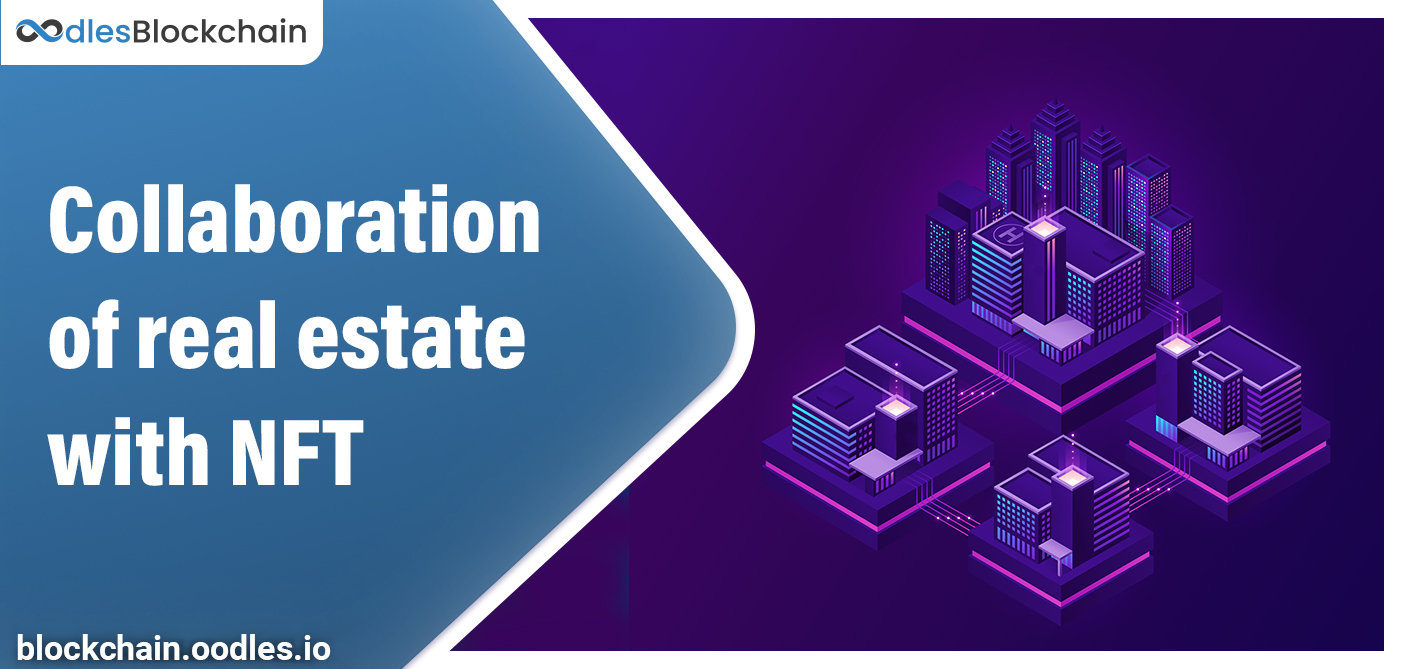-
The world of blockchain is gradually changing the way many industries operate, and the real estate sector is no exception. It is not surprising to see virtual real estate becoming a popular subject. The sale of fractional ownership or debt on a property using non-fungible tokens (NFTs) is becoming a trend. NFT is a blockchain-based virtual asset with a unique identification code and associated metadata. In this blog, we will dive deeper to understand NFT and real estate collaboration.
NFT and Real Estate - An Extensive Collaboration
NFTs are already becoming essential tools for displaying ownership of tangible and intangible objects on blockchain networks. Therefore, NFTs can be a perfect tool for facilitating the buying and selling of real estate properties. There are two main approaches to utilizing NFTs in real estate.
-
NFTs for Virtual Real Estate
As the name suggests, virtual real estate resides only in the virtual world. You can purchase these properties with cryptocurrencies. NFTs assist users in confirming the legitimacy and ownership of a virtual property acquired through gaming or other metaverse platforms. Virtual real estate is becoming a substantial portion of the metaverse world. Moreover, people purchase real estate NFTs in the hope of making money off of them in the future.
-
NFTs for Physical Real Estate
You can trade your physical real estate property using an NFT, which will represent that property, on a special marketplace. You can tokenize real estate as an asset to associate tokens with it.
Also, Read: Blockchain Smart Contracts in Real Estate: A Long-Awaited Breakthrough
How Real Estate NFT Works
An NFT for real estate works similarly to other NFTs. A buyer pays a real estate owner in tokens through a cryptocurrency marketplace. In return, the buyer gets an NFT in their virtual wallet. All you have to do is create a crypto wallet and purchase some cryptocurrencies. The Ethereum blockchain powers many metaverse platforms, including Decentraland and The Sandbox. The ownership document for every property is a distinct code residing on the blockchain. Also, you can sell it as NFT. However, some platforms are not compatible with ETH. So, you need to ensure that your wallet is suitable for the real estate’s blockchain.
Also read: A Quick Guide To NFT(Non-Fungible Token) Development
What Advantages Real-Estate NFTs Bring to the Market?
NFTs provide safe, traceable ownership records for various real estate investments and open the real estate market to different investors. Blockchain, which serves as the foundational technology for NFTs, has the potential to stop unlawful behaviors like tax evasion. Let’s examine more closely the main advantages that NFTs may offer:
Less Transaction Time
NFTs can aid in streamlining and accelerating lengthy processes of the real estate industry. Smart contracts can maintain and automate the process of bureaucracy and asset trading. Moreover, you can view the record of all these transactions on the blockchain.
Fractional Ownership
The word fractionalization in the context of NFT refers to sharing the ownership rights and the price of a digital asset like real estate property. Fractionalized NFTs allow you to share ownership rights and the cost of tangible assets among people in the real world. Minting a property’s ownership as a fractional NFT makes it easier for people to get started in real estate.
Security and Transparency
There is always a chance of losing, misplacing, and changing the ownership record of your property. Here tokenization of tangible property can make real estate transactions safer and more efficient. Since you can find the NFTs on a blockchain ledger, you can check their legitimacy by researching their prior transactions. Additionally, it may significantly reduce the possibility of hackers forging your property documents.
Interaction
Some people view their real estate NFTs as investments, while others prefer to employ their virtual property for its original purpose. Users can utilize their digital property to play games and socialize in the metaverse. Here real estate offers them a location to interact online with their friends.
Advertisement
By charging for entry or selling their NFTs for virtual real estate, creators can make money off the metaverse content. Brands can utilize virtual properties to host virtual product launches, advertise, and provide distinct consumer experiences. For instance, Nike created NIKE LAND as part of its metaverse foray to increase its user base. Users can participate in minigames and live a virtual lifestyle in this dynamic universe.
Future of Real Estate NFTs
NFTs appear to have a promising future in the real estate sector as more people join up. However, investigative work, title registration, property transfers, and double-ended procedures accompany the NFT property sales. Additionally, it is challenging to hold entire real estate properties as NFTs under the current government rules. It’s possible that they will evolve as blockchain technology and other cryptographic tools become more valuable for different tasks like generating mortgages and crowdfunding opportunities. As for now, you can look for chances to hold a piece of mortgage debt, construction projects, and other group assets as NFTs.
Read more: Real estate Tokenization and Blockchain | An In-depth Guide
Conclusion
It may be difficult for some people to comprehend the idea of paying for virtual real estate. However, you can consider the meteoric rise of virtual collectibles, the metaverse, and more to grasp the potential of NFT real estate. Moreover, NFTs have aided in improving the efficiency, transparency, and security of processes in this sector. It should not surprise us to see the emergence of additional properties of the metaverse as blockchain technology develops.
If you want to step into this new world of real estate, then our blockchain developers can help you to create NFTs for real estate.
-

Our Offices
INDIA
Emaar Digital Greens, Sector 61,
Gurugram, Haryana
122011.
Welldone Tech Park,
Sector 48, Sohna road,
Gurugram, Haryana
122018.














